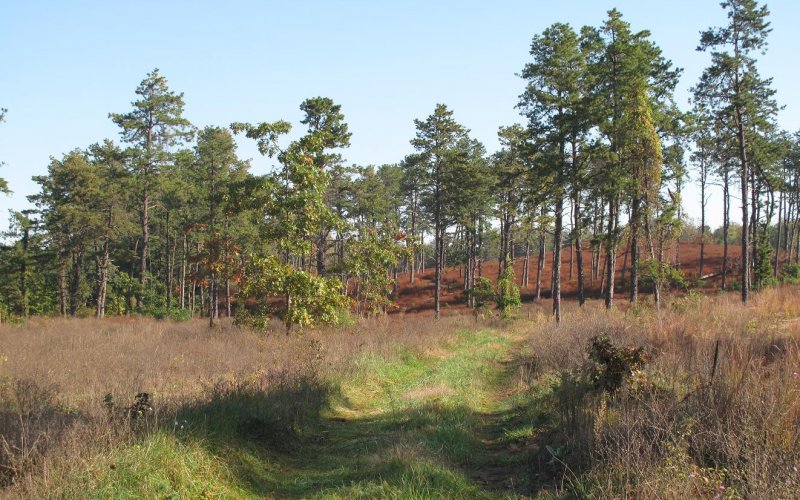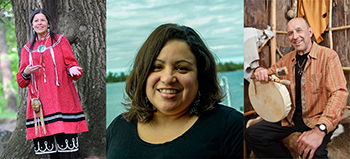Indigenous Voices Stress the Challenge and Hope of Inclusion at UAlbany

ALBANY, N.Y. (April 27, 2021) — Three scholars and spokespeople with ties to the indigenous peoples of the Northeast paid a virtual visit to UAlbany on Monday, lauding the University’s recent efforts to pay greater inclusion and respect to the history and culture of local indigenous communities, but also cautioning that action must proceed beyond acknowledgments.
Joseph Bruchac, an author, singer and storyteller who, along with educator-storyteller Kay Olan and activist Heather Bruegl participated in the University Senate forum “Indigenous Peoples of the Northeast: Past, Present and Future,” said “I give great thanks to the University at Albany for listening to indigenous voices, and for working with indigenous people.”
With Olan and Bruegl, he praised the renaming of Indian Quad as Indigenous Quad and the land acknowledgement by the University which recognizes that Indigenous people once settled and lived on the land UAlbany now calls home.
However, he later noted that the indigenous peoples are more than just noted names and places from history. “I applaud the University at Albany but want them to realize they are putting a burden on their own shoulders. And people will be watching. Will it be just check this box and that box, and move on? Native people cannot be forgotten, because we are the land.”

President Rodríguez introduced the program by pledging further commitment. In addition to more namings and new signage, he said UAlbany would be exploring all ways in which “we can more meaningfully include Indigenous communities in the education, research, service and cultural life of the University.”
As part of the University’s dedication to community, equity and inclusion, he said, “we are strongly committed to developing sustained and reciprocal relationships with New York’s Indigenous communities.”
Opening remarks of support were also provided by Senate Chair Zina Lawrence, assistant dean in Business, who said “we have to understand the path . . . to find a new way of seeing the history of our land we work on and of the indigenous people,” and Social Sciences Subject Librarian Deborah LaFond, who represented the University Life Council, of which she is chair.
Maeve Kane, assistant professor in History, who moderated the forum and forwarded audience questions to the participants, noted that “the University is among those institutions across North America grappling with its role in the maintenance of settler colonial legacies that erase indigenous peoples and cultures, past and present, for the land we occupy.”
Olan and Bruegl acknowledged this challenge institutions face. Olan evoked her people’s religious beliefs to stress a sense of guiding oneness and cooperation. “Land acknowledgments are opening the door to conversation and research,” she said. “Land acknowledgment by itself doesn’t mean much, so there must be some dialogue and action to make it meaningful.”
Bruegl, director of cultural Affairs for the Stockbridge Munsee Community in Wisconsin, and a self-described “blunt historian,” told how her people were settled in Stockbridge, Mass., lost many men helping the Colonies win the Revolutionary War, only to be moved off their land twice in Massachusetts, then once in Indiana, before finally settling in Wisconsin.
She urged UAlbany to “decolonize your curriculum. You need substantial change. Ask yourself really tough questions. Do you understand colonialism and what effect it still has today? Do you understand the privilege you have today because of colonialism?” She added that beyond decolonizing was “indigenizing,” and recommended such steps as adding an indigenous elder to campus to support indigenous students “to help guide them through the same things they went through.”
Bruchac also added some simple “fixes.” In many modern books, “indigenous peoples are still demonized, distorted and misrepresented. There are many new Native American authors, but not many are found on the library shelves. That should change.”
He also noted that most colleges don’t realize the indigenous people that have melded into their local populations. “You have people around here who are of indigenous tribes,” he said. “Invite them in.”




